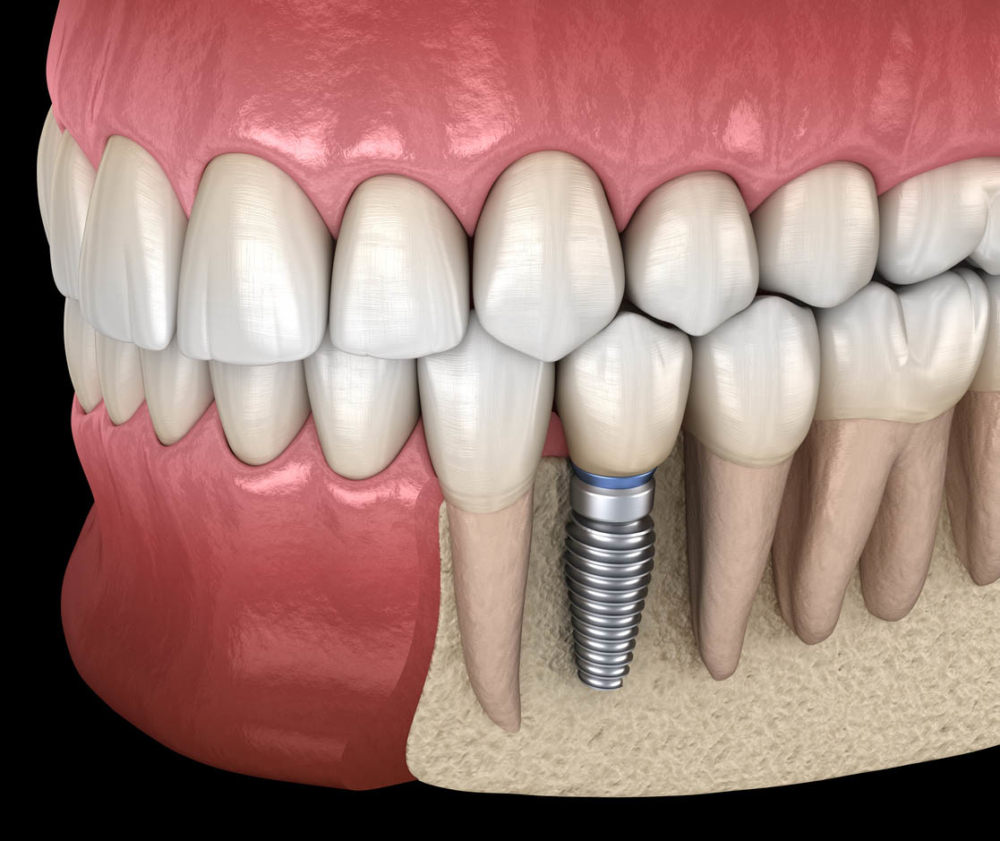The loss of teeth can have a significant impact on a person’s confidence and how they see themselves. Dental implants fit like normal, healthy teeth and ultimately improves a patient’s overall appearance, boosts self-esteem and restores a confident smile. In Singapore, dental implants have been one of the most sought-after tooth replacement procedures and for a good reason. Read on to know why.

Benefits of Dental Implant
Aside from aesthetic benefits, notable benefits of dental implants are:
Bite Improvement
With missing teeth, eating and especially chewing can be challenging and uncomfortable. With dental implants, patients’ bite is improved allowing them to relive the joy of eating with ease.
Protection of Natural Teeth
Constant wear and tear can put great stress on the remaining teeth. When dental implants fill the gaps where the previous teeth have been, they protect adjacent teeth by balancing the stress that natural teeth receive from grinding and chewing.
Good Candidates for Dental Implants
If you’re considering dental implants, it is important to note that consultation is very important as your dentist or Calgary orthodontist will be the one to assess if you are qualified. For you to be a good candidate for a dental implant procedure, you must have:
- Good overall oral health
- Ideal bone quality to support implants
- Healthy gums
These factors are crucial to ensure a successful dental implant anchorage and longevity. If a patient does not have sufficient bone quality, bone grafting can be performed. This added procedure can add up to the total cost. Patients with pre-existing dental conditions like gum disease also require pre-treatment. For patients with diabetes, weak bones or undergoing other medication regimes, dental implants may not be suitable. This is why patients are advised to discuss the best options with their dentist.
Cost of Dental Implants in Singapore
In private clinics like Dental Designs, the cost for a single dental implant in Singapore can range from $2,500 to $6,500 depending on a variety of factors such as:
- Consultation Fee
- Dentist Fee
- Laboratory Fees
- Brand of Dental Implants and Crowns
- Pain Management Anesthetics
- Bone Grafting (If necessary)
- Pre-treatment (If necessary)
- Aftercare Medications (If necessary)
A more expensive dental implant procedure doesn’t necessarily mean much better quality. Sometimes, depending on the complexity of the case and the patient’s preference. For example, those that require bone grafting and other additional procedures may pay higher prices. In addition, different brands of dental implants can vary in prices as well. For crown placements, other crown brands are more aesthetically identical to natural teeth and can cost way more than less aesthetic brands and usually, patients can choose their preferred crown type.
Steps in Dental Implant Procedure
I. Consultation
During the consultation, your dentist may require different diagnostic procedures to help them asses the complexity of your case and if your bones and gums are healthy enough. In the clinic, your dentist may require a series of:
- Routine Oral Examinations
- Dental X-rays
- 3D intra-oral scans
After obtaining sufficient data from these tests, your dentist can now asses potential implant sites and layout a dental implant surgical plan with you. Here, your dentist will discuss everything you need to know going forward and whether you will need additional procedures and pre-treatment.
II. Surgical Procedure for Dental Implant
Cleaning
Before surgery, proper cleaning and polishing of the teeth and gums are required to help reduce the bacteria in your mouth that can slow down healing.
Pain Management
For a more comfortable surgery, patients can choose to be administered with intravenous (IV) sedation, local anesthesia or general anesthesia.
Dental Implant Surgery and Mechanism
When the anesthesia takes effect, your dentist begins to surgically insert the dental implant into your jaw bone to serve as anchor for an artificial tooth. These implants are typically made of biocompatible titanium-alloy which forms a strong bond with the surrounding bone (osseointegration) for period of 2-3 months. Duration of the surgery can be as short as under 30 minutes depending on the number of implants to be inserted.
III. Crown Placement
Complete bone and implant integration, as well as healing of bone and gums can take about 2-6 months. Once fully healed, implant crown placement can be carried out. During this procedure, your dentist will place a crown, or fabricated teeth similar to neighboring teeth for a more aesthetic look. An abutment, or a connecting element connects the implant to the new tooth. Depending on the number of implants and the complexity of the case, multiple visits may be required to complete crown placement.
Post-surgery Downtime
After the surgery and the anesthesia start to wear off, expect some discomfort and swelling in the treated area. To help you manage the pain and discomfort, some painkillers and aftercare medications will be prescribed by your dentist. While recovering, it is advised that you stick to a soft diet to avoid irritations. Downtime can go on for about 1 to 2 days. Most patients can already go to work after a couple of days post-surgery.
Medisave Claim for Dental Implants
Since a dental implant entail surgical a surgical procedure, it is Medisave claimable. For a single dental implant, you can typically claim up to $1250 in Medisave and can even claim up to a maximum of 8 implants for $7500. Do note though, that the Ministry of Health will have the final say regarding the total claimable amount. In addition, crowns and abutments are charged separately and cannot be included in the Medisave claim.
Longevity of Dental Implants
When performed by a skilled dentist and with quality-brand implants, dental implants can be long-lasting. However, like any medical procedures, the success rate can really depend on the individual and can be greatly influenced by:
Maintenance and Oral Hygiene
Maintaining a healthy oral hygiene is a key factor that keeps implants intact. If one does not practice good dental hygiene techniques like proper brushing and flossing, there is a great possibility that implants can fail. Regular dental check-ups of at least twice a year can ensure implant to last for a long time.
Lifestyle and General Health
Better food and lifestyle choices can help preserve the integrity of implants. Over-all health can also play a significant role as the possibility of getting an infection post-surgery can occur. Older patients may also have weaker bones compared to younger ones and may require more frequent trips to the dentist for maintenance.








